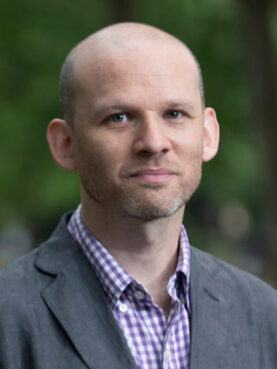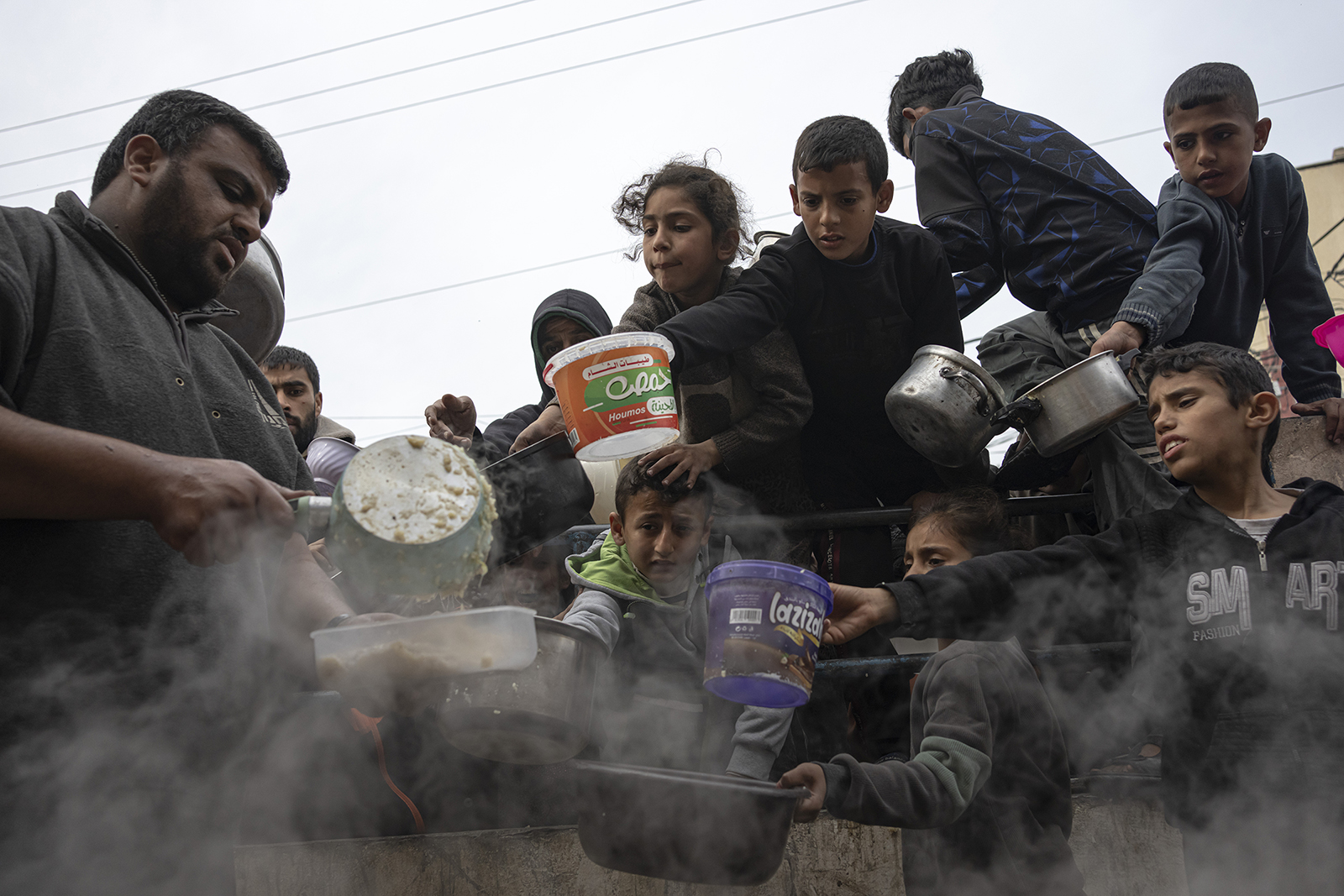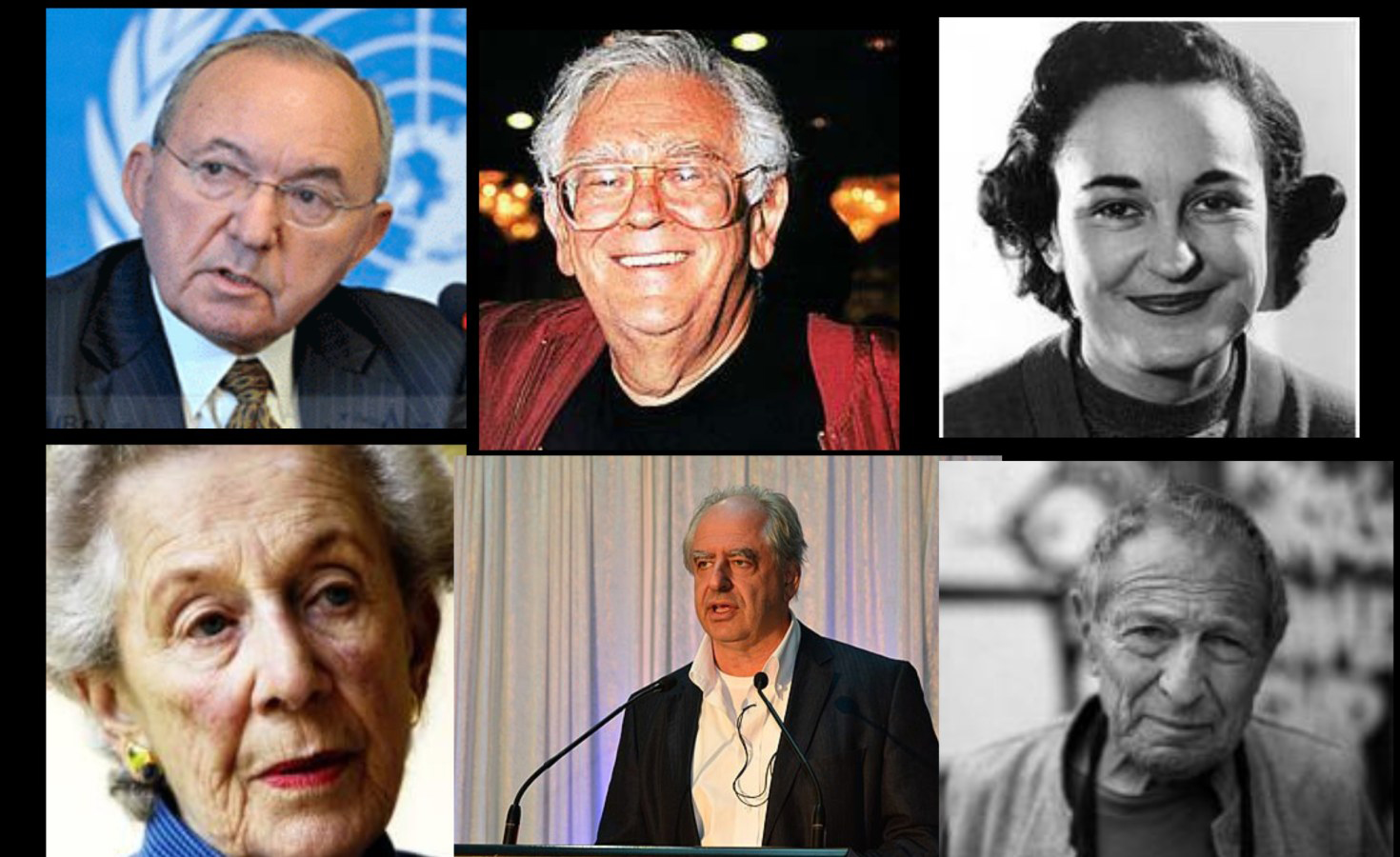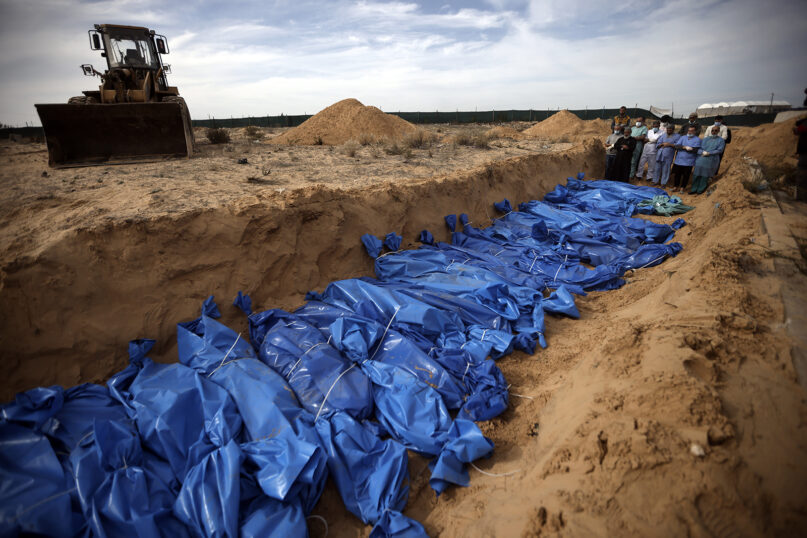(RNS) — In its initial ruling on South Africa’s petition accusing Israel of planning a genocide in Gaza on Friday (Jan. 26), the International Court of Justice in the Hague ordered Israel to do more to prevent civilian deaths.
But the case itself may raise the question: Why South Africa?
The answer is not, despite one South African rabbi‘s denunciation of his government’s action as a revival of the “blood libel” against Jews, that it is rooted in antisemitism.
Rather, the ICJ case is a confrontation deeply rooted in the liberation struggle against South Africa’s apartheid regime, which ruled the majority Black nation for decades. While certain South African Jews fought it, Israel supported the apartheid regime. Especially troubling was Israeli military support for the apartheid government.
“Israel armed — and thereby prolonged the rule of — a government that sought to destroy the (African National Congress) as a liberation movement and maintain a system of white supremacy,” Sasha Polakow-Suransky, deputy editor of Foreign Policy magazine and author of the 2010 book, “The Unspoken Alliance: Israel’s Secret Relationship with Apartheid South Africa,” said in an email interview last week.

Sasha Polakow-Suransky. (Photo © Chris Gloag)
“Many countries helped apartheid South Africa, but Israel did it for longer … more consistently, and in key areas that according to the apartheid-era generals I interviewed were absolutely crucial to maintaining their military dominance at home and in the region,” said Polakow-Suransky. “That’s not easily forgotten.”
Part of that military relationship involved cooperation on nuclear technology, notes Polakow-Suransky. Israel needed South African uranium for its clandestine nuclear program, while South Africa was desperate for advanced components and missile delivery systems for its own nascent nuclear arsenal.
In addition, said Polakow-Suransky, “There was a lot of cooperation on control of movement and checkpoints, which both the IDF and the South African Defense Force were keenly interested in, and there is evidence that South Africa sought to buy Israeli equipment for use in domestic riot control.”
Using official South African government documents, Polakow-Suransky confirmed top secret meetings in 1975 in which then-South African defense minister, later president, P.W. Botha requested that his Israeli counterpart, Shimon Peres (then Israel’s defense minister), sell the apartheid regime nuclear warheads and Jericho missiles.
The next year, Prime Minister John Vorster visited Israel. As justice minister, he implemented apartheid’s most onerous laws. During World War II he was interned for his Nazi sympathies.
Some attributed the relationship to pragmatism, others to cynicism. Whatever the rationale, actions have consequences. Since it came to power in 1994, the ANC-led South African government has consistently voted against Israel in international forums on a variety of issues.
South Africa is a leading supporter of the Boycott, Divestment and Sanctions movement against Israel. That movement uses as its playbook the successful ANC-sponsored 1980s boycott campaign credited with helping topple the South African apartheid regime. The PLO’s Yasser Arafat, a longtime ANC supporter, was a boycott backer. Israel did not support it.
The South African people are no doubt genuinely moved by humanitarian concern over the Gaza carnage. “There is longstanding pro-Palestinian sentiment in SA and genuine sympathy among people who don’t even know the history of military cooperation,” said Polakow-Suransky.

Palestinians line up for a free meal in Rafah, Gaza Strip, Dec. 21, 2023. (AP Photo/Fatima Shbair)
But there are political considerations for the ANC leadership as well, said Kenneth Vickery, emeritus professor of African history at North Carolina State University.
“When threatened or criticized, the ANC’s traditional response has been to hearken back to the glory days of the anti-apartheid struggle,” he said. “This is an election year in South Africa, following unequaled levels of service delivery failures and corruption. It is not surprising that the government would shift the focus to prosecution of an old enemy, especially in light of the real horrors in Gaza/Israel.”
The ICJ proceedings have struck nerves in South Africa’s Jewish community, many of whom are descended from working-class immigrants who fled persecution in Lithuania in the 1920s, and a sprinkling of Germans who fled the Nazis in the 1930s. Not surprisingly, when the white supremacist National Party took power in 1948 and began instituting apartheid, Jews were among the first to oppose it. Among the defendants in the sensational 1956 treason trial, in which Mandela was the chief defendant, was Jewish anti-apartheid activist Helen Joseph.
Some apartheid opponents emigrated. Among those remaining, most “were inwardly focused on specifically Jewish issues, remaining distant from the central South African issue of racial injustice,” wrote Franklin Hugh Adler, in his 2000 paper, “South African Jews and Apartheid.” Not until 1985 did the Board of Jewish Deputies formally condemn apartheid, wrote Adler, though a handful of heroic rabbis spoke out earlier.
Regrettably and shamefully, some Jews actively supported the regime, including Percy Yutar, Nelson Mandela’s tenacious prosecutor in the infamous Sharpeville trial.

Notable anti-apartheid Jews in South Africa. Top row from left: Richard Goldstone, Joe Slovo, Ruth First. Bottom row from left: Helen Suzman, William Kentridge, David Goldblatt. (Collage courtesy allAfrica.com)
Courageous South African Jews who stayed and joined the liberation struggle provided nonviolent opposition from the parliamentary (Suzman), judicial (Richard Goldstone) and artistic (Nobel laureate Nadine Gordimer) communities. Others chose more direct action, joined the African National Congress and were banned or jailed or worse.
“In literally every aspect of the anti-apartheid struggle — political, military, legal, cultural — Jews in substantial numbers were conspicuously present,” Adler wrote.
The best known of the “action faction” was Joe Slovo, for a time chief of staff of the ANC’s military wing, known as Spear of the Nation. Slovo and his wife, Ruth First, were close to Mandela and, like him, were members of the South African Communist Party. Many in this group paid a heavy price: First was killed by a bomb mailed to her in Mozambique by South Africa’s secret police. When, after serving as minister of housing in the post-liberation government, Slovo died, Mandela was at his bedside.
Albie Sachs, a lawyer and legal scholar, wrote the ANC’s code of conduct, which banned torture, and helped write South Africa’s Bill of Rights and its first constitution. Mandela later appointed him to the nation’s Constitutional Court. Sachs lost an arm in a car bomb attack in the same wave that killed First.
Other Jews underwent torture and served long prison terms on Robben Island.
Why was the alliance between Jewish leftists and Black revolutionaries so deep? Mandela wrote in his autobiography, “I have found Jews to be more broad-minded than most whites on the issues of race and politics, perhaps because they themselves have historically been victims of prejudice.”
Still, some, such as Gordimer, grumbled that some ANC members have tried to “write out” Jewish and other white apartheid opponents’ contributions.
The ideological fissure within the South African Jewish community today regarding the IJC genocide charges mirrors the earlier one over apartheid, if in less dramatic fashion.
Last November, according to allAfrica.com, Concerned Jews of South Africa, a coalition of liberal and leftist organizations and individuals, issued an open letter signed by more than 750 broadcasters, journalists and artists, as well as students and community activists.
While condemning Hamas’ terrorism, they wrote, “We must hold to account those responsible for violence against civilians — whether perpetrated in Gaza, the West Bank, or Israel. We do so not in spite of our Jewish identity, but because of it.”
In reaction, the country’s Jewish Board of Deputies, which has focused exclusively on Israeli hostages and condemning Hamas terrorism, has accused the signers of being self-hating Jews, a charge familiar to dissenting American Jews.
Andrew Feinstein, who formerly represented the ANC in South Africa’s parliament, told the Guardian that the Board of Deputies’ criticisms should not carry much moral weight.
“The Jewish Board of Deputies have never criticized anything Israel has done for as long as I can remember. It’s worth reminding oneself that the organized Jewish community in South Africa found it extraordinarily difficult to criticize apartheid until the mid-1980s. So, we’re not talking about people speaking from a position of moral integrity here,” he said.
(Mark I. Pinsky is a journalist and author based in Durham, North Carolina. The views expressed in this commentary do not reflect those of Religion News Service.)





